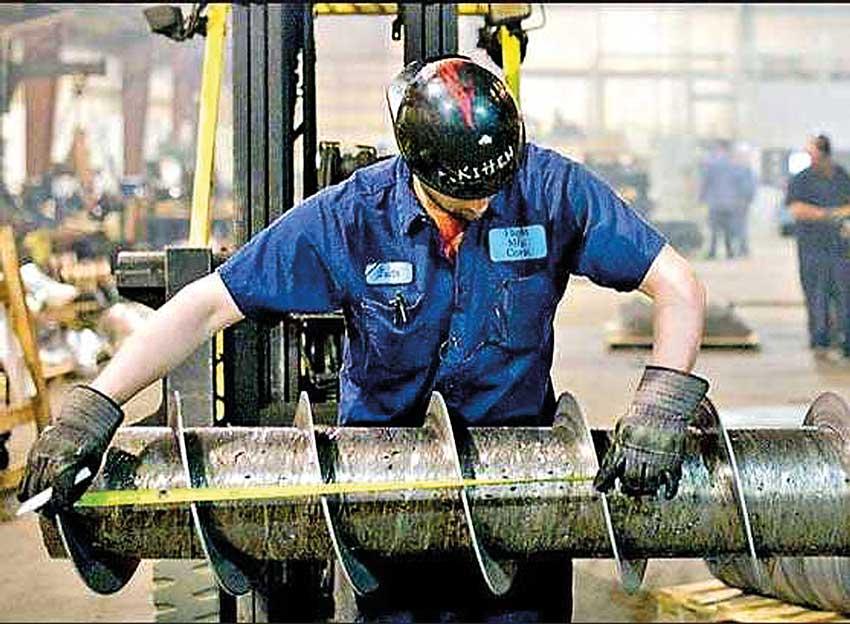Reply To:
Name - Reply Comment

The economic crisis, which precipitated into an all out civil unrest, took massive toll on the country’s manufacturing and services activities in May with factories scaling down operations and people losing jobs in what appears to be a forerunner for a deeper contraction in the Sri Lankan economy in the scale that it has never seen before.
According to the Purchasing Managers’ Index (PMI) data, Sri Lanka’s manufacturing activities reported an index value of 50.3 for May while the services activities recorded an index value of 42.4, reflecting subdued activities in the former and a contraction in the latter. PMI is an important gauge of economic health, and an index value of 50 indicates a neutral activity level while anything above reflects an expansion and anything below portrays contraction.
The manufacturers who responded to the survey had cited that they confronted innumerable hardships from clearance delays of imported materials to logistical impediments from the fuel shortage to the impact coming from the red-hot inflation which is currently sending shock waves across both supplier and consumer markets.
The May PMI clearly indicated a decline in demand for goods as record high inflation has eroded people’s real
incomes.
Sri Lanka’s producer prices for April jumped 52.4 percent while the consumer prices soared just shy of 40 percent in May, both recording fresh historical highs, reflecting that manufacturers are passing down most of their high costs to the end consumer.
The index for May clearly saw a slowdown in performance in production and new orders in food and beverage manufacturing, partly coming from the end of the festive demand in April and partly from the price pressures which grew hotter and more entrenched.
Besides the weak demand conditions, manufacturers are also scaling down their operations as they are hamstrung by supply side constraints such as the prolonged and deepening fuel shortage, daily power cuts, unavailability of raw materials in the domestic markets which has been exacerbated by the difficulties in opening
letters of credit.
Meanwhile, the services sector shrank for the second consecutive month in May as the events that unfolded in the month bucked the recovery in tourism industry while the fuel shortage limited people’s commute and other transportation activities in the country resulting in a slowdown in wholesale and retail trade, food & beverage sector activities and accommodation services.
Highlighting perhaps one of the biggest concerns in the sector, many companies are laying off their staff due to loss of business as SMEs are scrambling to stay afloat. Rising unemployment will add to the misery the people already undergo and could spark massive scale public upheaval.
Already the current fuel shortage has taken a massive toll on millions who depend on taxi driving and other forms of transportation sector employment, while the rest of the economic activities are on the brink of coming to a halt as people are unable to commute to their workplaces as public transport services hardly operate. “Employment continued to decline in May due to terminations in line with the decline in business activities, retirements and resignations,” the PMI survey revealed this week.